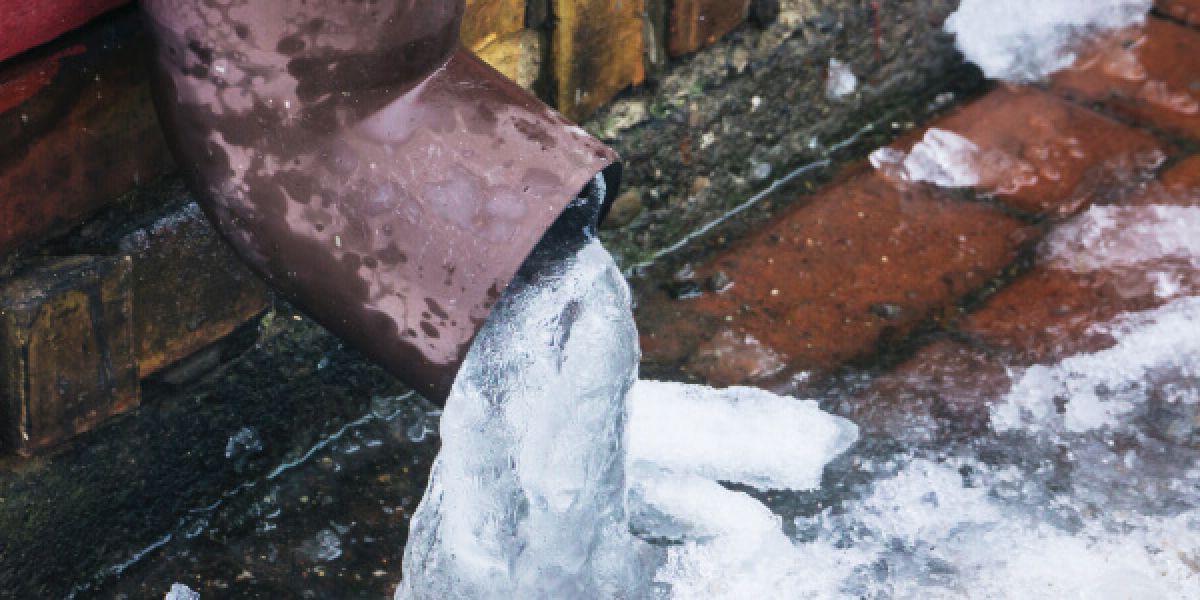Here underneath you can get some sound information and facts concerning Winter Plumbing Precautions: Preventing Frozen Pipes.

Winter can ruin your plumbing, particularly by freezing pipelines. Right here's how to prevent it from occurring and what to do if it does.
Introduction
As temperature levels decrease, the risk of frozen pipes boosts, possibly resulting in costly repair work and water damage. Comprehending just how to avoid icy pipelines is critical for home owners in cold climates.
Prevention Tips
Protecting at risk pipes
Cover pipes in insulation sleeves or use heat tape to safeguard them from freezing temperatures. Concentrate on pipes in unheated or external areas of the home.
Heating methods
Keep indoor areas sufficiently heated, particularly locations with pipes. Open up closet doors to allow warm air to circulate around pipelines under sinks.
How to identify icy pipes
Search for decreased water flow from faucets, unusual smells or sounds from pipelines, and noticeable frost on exposed pipelines.
Long-Term Solutions
Structural adjustments
Think about rerouting pipelines far from outside wall surfaces or unheated areas. Include added insulation to attic rooms, basements, and crawl spaces.
Updating insulation
Purchase top quality insulation for pipelines, attic rooms, and wall surfaces. Correct insulation assists maintain constant temperature levels and minimizes the danger of icy pipelines.
Protecting Exterior Plumbing
Yard hose pipes and exterior taps
Separate and drain garden tubes before winter. Mount frost-proof spigots or cover exterior taps with protected caps.
Comprehending Icy Pipes
What causes pipes to ice up?
Pipes freeze when revealed to temperature levels below 32 ° F (0 ° C) for prolonged durations. As water inside the pipes ices up, it broadens, taxing the pipeline walls and potentially creating them to rupture.
Risks and problems
Icy pipelines can bring about supply of water disturbances, building damage, and expensive fixings. Burst pipelines can flood homes and cause extensive structural damage.
Signs of Frozen Pipeline
Identifying icy pipes early can prevent them from rupturing.
What to Do If Your Pipes Freeze
Immediate activities to take
If you believe icy pipelines, maintain taps open up to ease pressure as the ice thaws. Use a hairdryer or towels taken in warm water to thaw pipelines slowly.
Verdict
Stopping frozen pipelines needs positive steps and quick feedbacks. By recognizing the reasons, signs, and safety nets, home owners can protect their pipes throughout winter.
Helpful Tips to Prevent Frozen Pipes this Winter
UNDERSTANDING THE BASICS: WHY PIPES FREEZE AND WHY IT’S A PROBLEM
Water freezing inside pipes is common during the winter months, but understanding why pipes freeze, and the potential problems it can cause is crucial in preventing such incidents. This section will delve into the basics of why pipes freeze and the associated problems that may arise.
THE SCIENCE BEHIND FROZEN PIPES
When water reaches freezing temperatures, it undergoes a physical transformation and solidifies into ice. This expansion of water as it freezes is the primary reason pipes can burst. As the water inside the pipe freezes, it expands, creating immense pressure on the walls. If the pressure becomes too great, the pipe can crack or rupture, leading to leaks and water damage.
FACTORS THAT CONTRIBUTE TO PIPE FREEZING
- Low Temperatures: Extremely cold weather, especially below freezing, increases the risk of pipes freezing.
- Uninsulated or Poorly Insulated Pipes: Pipes located in unheated areas, such as basements, crawl spaces, or attics, are more prone to freezing. Insufficient insulation or lack of insulation altogether exacerbates the problem.
- Exterior Wall Exposure: Pipes running along exterior walls are susceptible to freezing as they encounter colder temperatures outside.
- Lack of Heating or Temperature Regulation: Inadequate heating or inconsistent temperature control in your home can contribute to frozen pipes.
PROBLEMS CAUSED BY FROZEN PIPES
WHY CERTAIN PIPES ARE MORE PRONE TO FREEZING
- Pipe Bursting: As mentioned earlier, the expansion of water as it freezes can cause pipes to burst, resulting in significant water damage.
- Water Damage: When pipes burst, it can lead to flooding and water damage to your property, including walls, ceilings, flooring, and personal belongings.
- Structural Damage: Prolonged exposure to water from burst pipes can compromise the structural integrity of your home, leading to costly repairs.
- Mold and Mildew Growth: Excess moisture from water damage can create a favorable environment for mold and mildew growth, posing health risks to occupants.
- Disrupted Water Supply: Frozen pipes can also result in a complete or partial loss of water supply until the issue is resolved.
https://busybusy.com/blog/helpful-tips-to-prevent-frozen-pipes-this-winter/
- Location: Pipes located in unheated or poorly insulated areas, such as basements, crawl spaces, attics, or exterior walls, are at higher risk of freezing.
- Exterior Pipes: Outdoor pipes, such as those used for irrigation or exposed plumbing, are particularly vulnerable to freezing as they are directly exposed to the elements.
- Supply Lines: Pipes that carry water from the main water supply into your home, including the main water line, are critical to protect as freezing in these lines can affect your entire plumbing system.
- Underground Pipes: Pipes buried underground, such as those connected to sprinkler systems or outdoor faucets, can be susceptible to freezing if not properly insulated.

As a reader on Winter Plumbing Precautions: Preventing Frozen Pipes, I assumed sharing that segment was really useful. If you enjoyed reading our blog posting if you please make sure you remember to share it. Thank you for taking the time to read it.
Source This Article
Comments on “Essential Tips for Preventing Frozen Plumbing in Cold Weather Seasons”